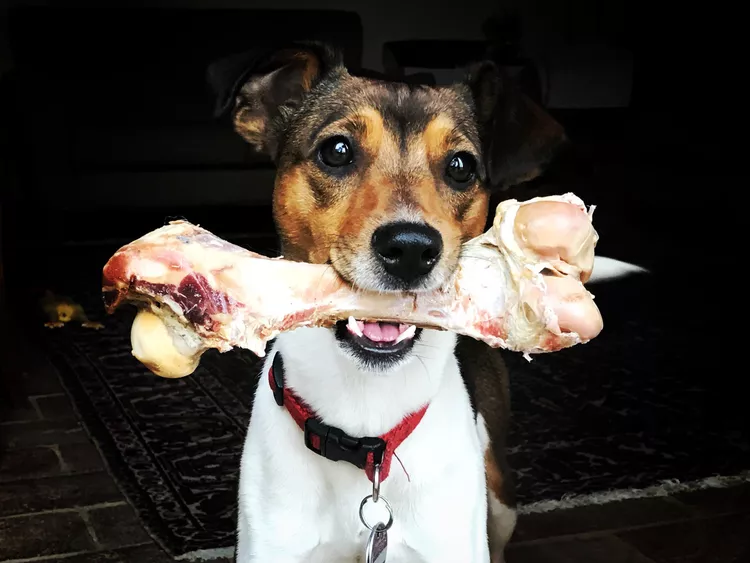
Dogs and bones go hand in hand, but not all bones are safe for your dog to eat. In fact, many of them can be downright dangerous.
With the holidays fast approaching, it is important to know what bones to keep away from your dogs and what to do if your dog eats something it shouldn’t.
Cooked bones of all types should be kept away from dogs. Because they are cooked, they are more likely to splinter and cause internal damage. Hollow bones, such as chicken and turkey bones, are especially susceptible to splitting, but cooked bones of all varieties can be dangerous if ingested.
The following are possible dangers associated with eating cooked bones, according to VCA Animal Hospitals:
“[Cooked bones] can scratch the esophagus, they can scratch the gastrointestinal tract, they can even cause a penetrating injury, which is one of the worst things we can see from them,” Dr. Brian Carson, DMV, who practices in Virginia, said in an interview with The Spruce Pets.
The easiest way to keep cooked bones away from your pets is to keep them away from the kitchen, the dining room, the trash, or anywhere a cooked bone might be.
This can be hard for dogs that are used to having free roam of the house, so another strategy is to exercise caution. Keep an eye on the dog, keep the trash can lid secure, and make sure your family and guests are aware that they should not feed the dog table scraps.
“Make sure that everyone, all the guests, understand the potential dangers of feeding certain foods, especially cooked bones, and to know what to avoid and what’s okay,” Carson said.
No matter how cautious you are, there’s still a chance your dog can get ahold of a cooked bone. If your dog has eaten a cooked bone, or you suspect that they have, immediately consult a veterinarian. Let them know what kind of bone your dog consumed, if you are aware. The vet might advise you to bring your dog to an emergency vet, force them to vomit, or take another course of action.
Signs of discomfort you may notice if your dog ate a cooked bone include vomiting, nausea, lethargy, drooling, panting, and pacing, according to Carson. Monitor your dog for these behaviors if you suspect it ate a bone, and call your vet if you are not sure.
During the holidays, it is important to know what other human foods can be harmful to your dog. The U.S. Food and Drug Administration lists the following foods as being being particularly dangerous:
Chocolate and macadamia nuts, which can be found in some holiday desserts, can also be harmful.
If you want to give your dog a special Thanksgiving treat, Carson recommends small quantities of cooked turkey, plain green beans, and pumpkin puree (not pumpkin pie or pumpkin pie filling).
Raw bones and antlers are generally more safe than cooked bones, but many vets recommend still exercising caution, as these bones can cause damage to teeth, choking, or other issues.
Carson recommends making sure to appropriately size raw bones for dogs so that they are less likely to swallow them whole, and monitoring them while they are chewing.
“Personally, I don’t recommend [raw bones] because they can still break off larger chunks and swallow larger chunks,” Carson said. “So when using any type of toy or bone that’s more stimulating, we want to make sure we’re sizing it appropriately for the dog. If you give a 60 or 80-pound dog a piece of rib, they’re more likely to swallow that whole than a chihuahua who can probably not fit his whole face around it."
Raw foods also carry an increased risk of bacteria, such as salmonella or E.coli, which may be harmful to your dog or people in the home.
If you suspect your dog has eaten a cooked bone or something else they shouldn’t have, consult your vet. You can also reach the ASPCA Animal Poison Control Center at 888-426-4435.
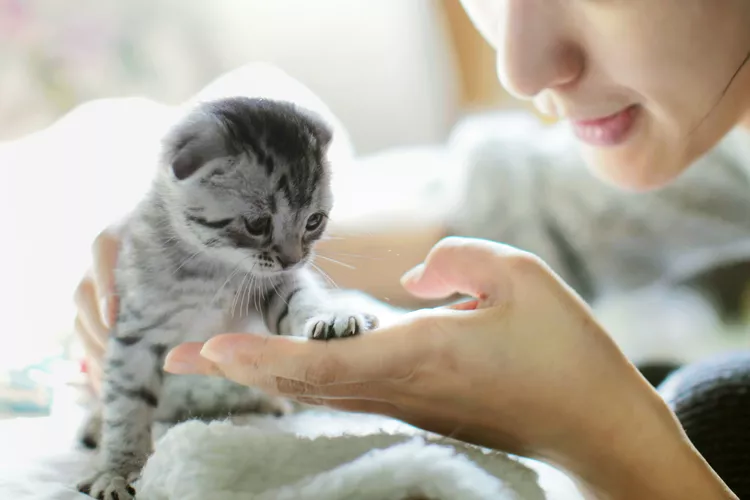
The First 30 Days With Your New Kitten
The first month is full of changes and excitement for a kitten in a new home. Find out what to expect and what you can do for your new feline friend.
How Old Is Your Cat in Human Years?
As a cat ages, there are often behavioral and physical changes too. Find out how to convert cat years to human years and what to expect at each stage.
What to Buy for Your New Cat: A List of Essentials
Before you bring your new cat or kitten home, there are a number of things to collect or buy so your cat will feel welcomed like a family member.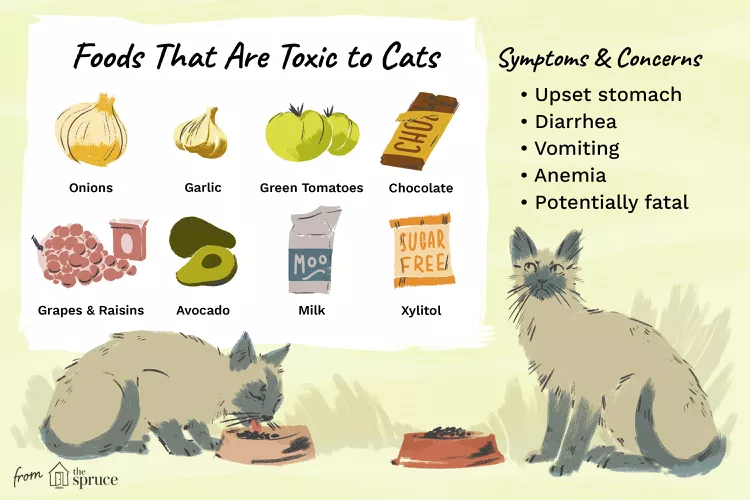
Human Foods That Are Poisonous to Cats
Many human foods are toxic to cats. Avoid feeding cats table scraps. Instead, feed a nutritious cat food created for their specific nutritional needs.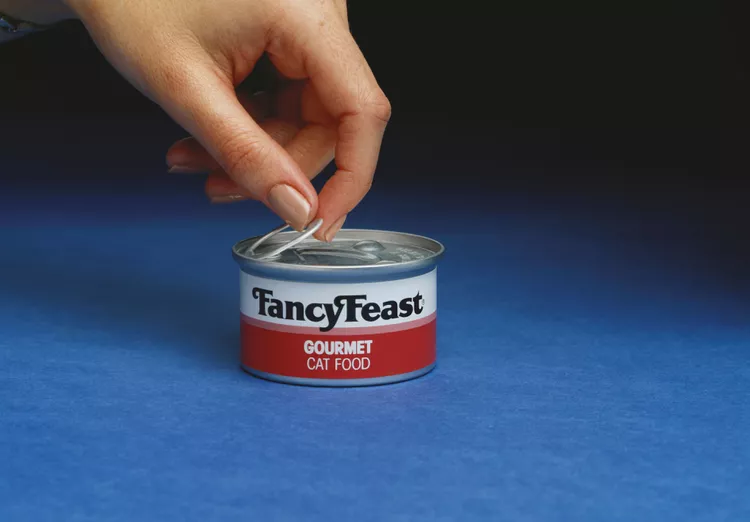
Cat Food Ingredients to Avoid
When checking the nutrition content of cat food, look for ingredients that are not healthy or show it is of poor quality. Avoid these 3 ingredients.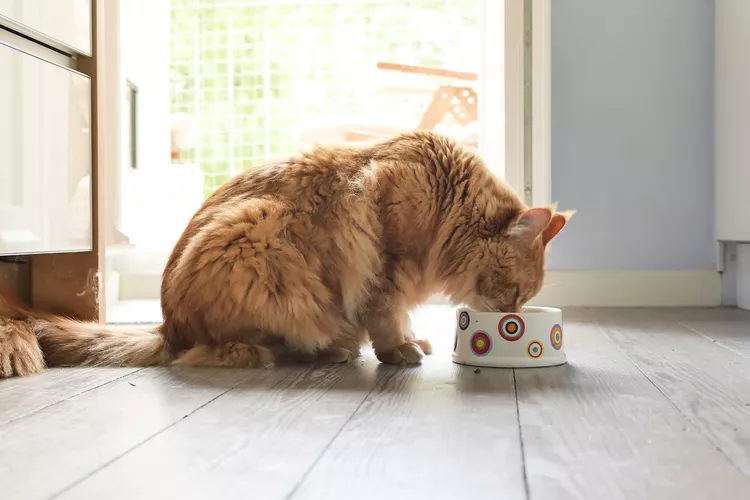
Should You Feed Your Cat a Raw Diet?
Learn the pros and cons of raw diets for cats, and find out how to choose a raw food diet for your own cat.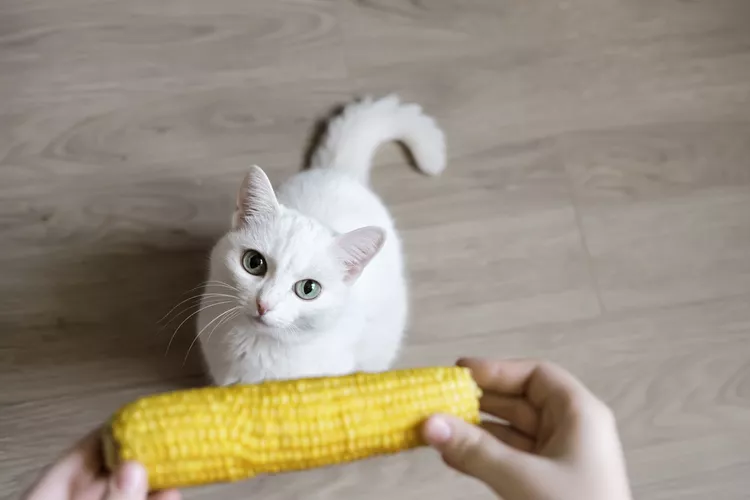
Can Cats Eat Corn? Here's What A Vet Thinks
Corn is a common ingredient in cat food and can be a safe treat for cats when fed in moderation. Find out more about how to safely feed corn to your cat.
10 Obscure, Little-known Canine Facts in Honor of National Dog Day
With National Dog Day upon us, it's time to celebrate everything about our favorite pets—even the weirder stuff. Here are 10 obscure facts about dogs you probably didn't know.
The Different Types of Pet-Friendly Workplaces
Discover the different types of pet-friendly workplaces and the benefits they offer employees. Learn how to create a pet-friendly workplace and the best practices for pet owners.
Exploring the Different Types of Pet-Friendly Beaches
Are you looking for pet-friendly beaches? Learn about the different types of pet-friendly beaches, their locations, and tips for visiting them with your pet.
Why Is My Dog Lethargic?
Lethargy can be a sign that something is wrong with your dog. Find out what may be causing this lack of energy and what you should do about it.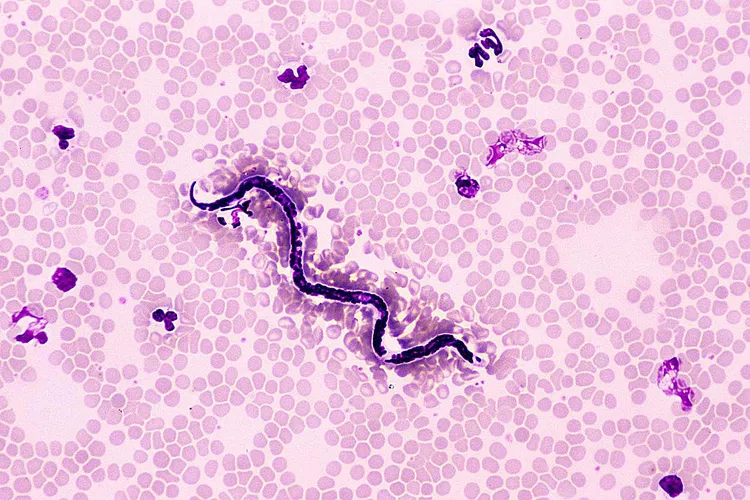
Medications to Prevent Heartworm Disease for Dogs
Heartworm disease is a serious risk for all dogs exposed to mosquitos. Find out about the products used to prevent Heartworm disease in dogs.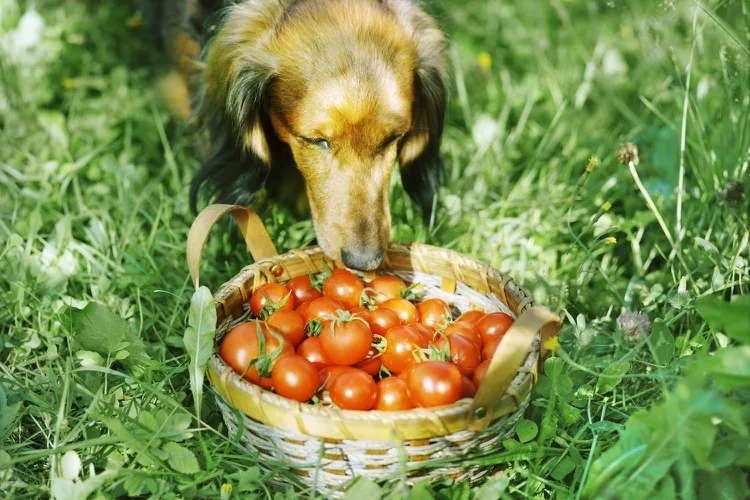
Can My Dog Eat Tomatoes?
You'll want to keep Fido out of your garden since the tomato plant is toxic, but you can safely offer him ripe tomatoes as a nutrient-packed treat.
15 Best American Cat Breeds
Several cat breeds, including the American shorthair and Bengal, have their origins in the United States. Learn more about these American cat breeds.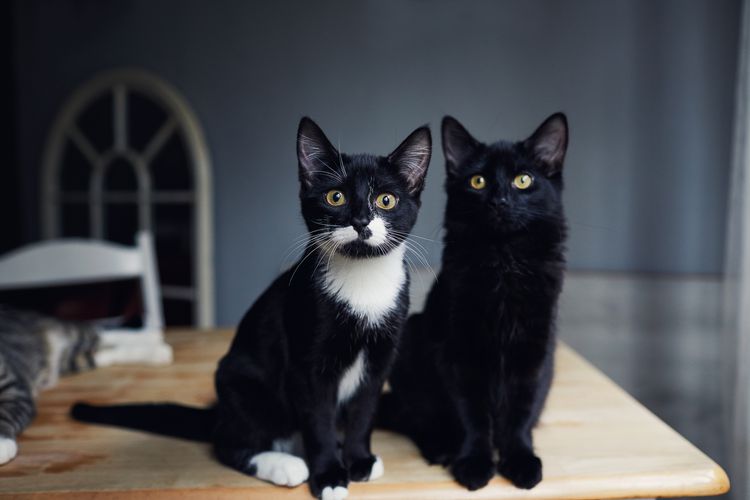
Why Do Cats Slap Each Other?
Cats can have some quirky behaviors—one of them being slapping each other. Why do they do this and what can you do to stop it?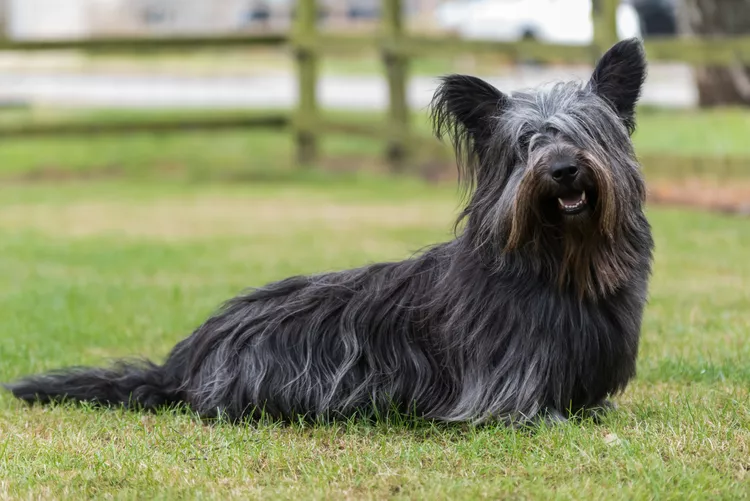
Skye Terrier: Dog Breed Characteristics & Care
Learn all about the Skye Terrier, an elegant breed known for its friendly and even-tempered personality with classic terrier traits.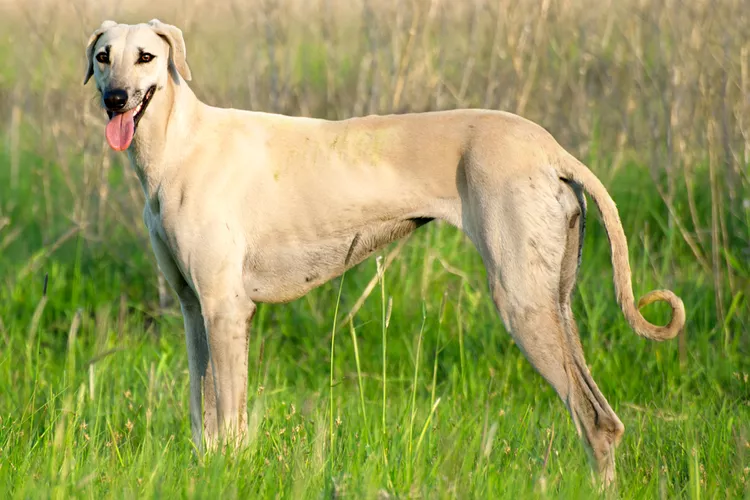
Sloughi: Dog Breed Characteristics & Care
Learn all about the Sloughi, an ancient dog breed known for its impressive running ability, slim stature, and affection toward its family.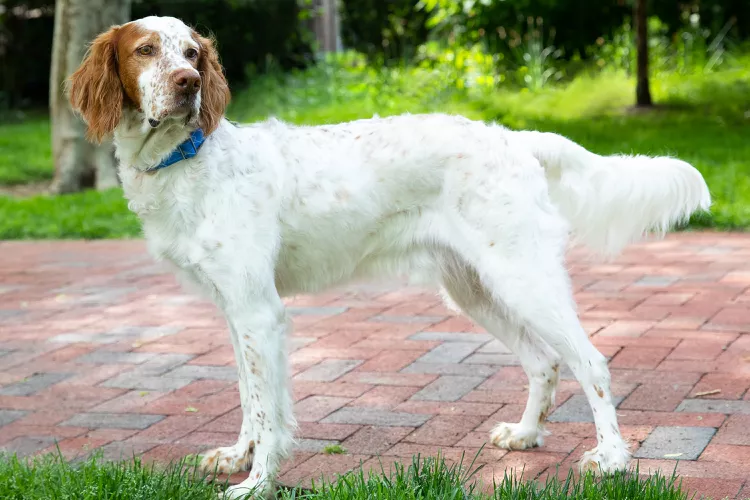
English Setter: Dog Breed Characteristics & Care
Learn about the English setter, an excellent hunting breed for pointing and retrieving game. It's also a popular and affectionate companion dog.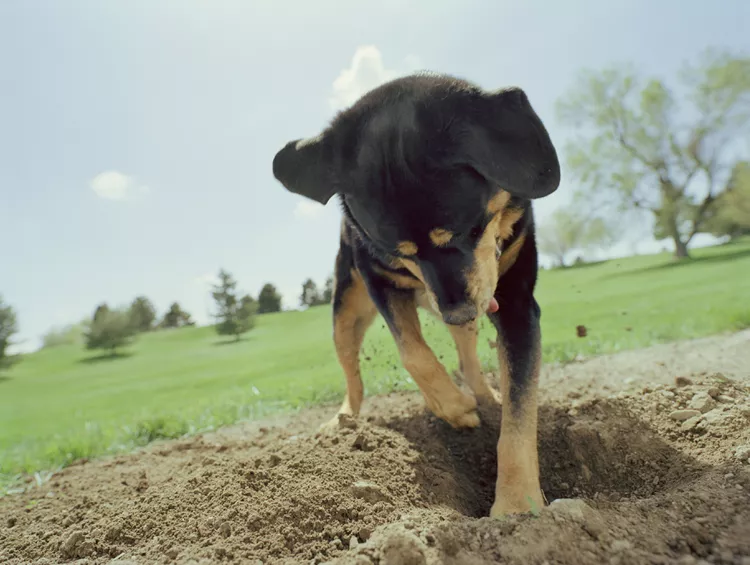
Why Dogs Bury Bones and Other Objects
If you give a dog a bone, he might bury it. Why is that? Learn about this burying behavior in dogs and what it means for your pet.
Reasons Why Dogs Run Away and How to Stop It
Dogs can escape, especially if they’re bored and not properly contained. Here are some techniques for stopping your dog from running away.